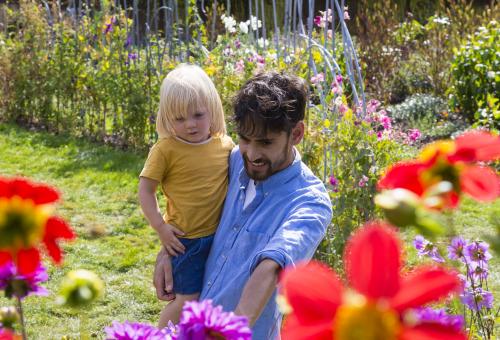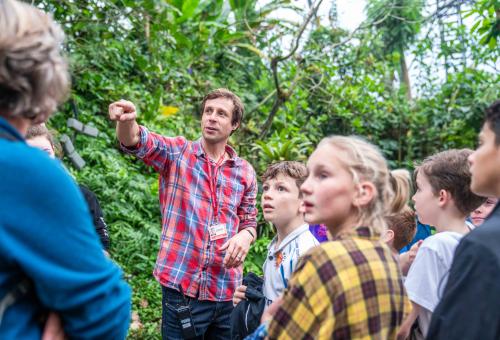
The DfE sustainability and climate change strategy
The Department of Education’s Sustainability and Climate Change strategy is here. Looking to establish the UK as world leaders in sustainability and climate change education by 2030, we think the strategy is a huge (if daunting!) step in the right direction.
To help you get ahead of the game, we’ve taken a deep dive into the strategy, the vision, its aims and what it will actually mean for you and your classroom...
The vision and aims of the strategy
What will it actually mean for you and your school?

1. National Education Nature Park
This will involve the whole education estate across England – nurseries, schools, colleges and universities. Settings will identify pieces of land – the bits in between and at the edges of buildings, playgrounds and sports fields – and use them to improve biodiversity.
Students and pupils will plant trees, grow plants and gardens, create and monitor wildlife habitats – and will benefit from being active outside, growing skills and learning about nature and eco-systems. Children and young people will participate in digitally mapping and tracking the growth of biodiversity in the education estate.

2. Climate Leaders Award
Students will also explore how their schools and settings can operate more sustainably through challenges around reducing food waste, saving energy and using less plastic. By taking part and leading change in their school and wider community, schools, nurseries, colleges and individual students will be able to earn credits towards an award. This Climate Leaders Award will recognise and celebrate education providers, children and young people for their brilliant projects and work.
By nurturing a connection to nature, and a sense of agency, these two initiatives will inspire passions and career choices for young people, and lead to innovation and growth within sustainable industries and green careers.

3. Sustainability leadership
The vision is for children and young people to be at the heart of planning and actioning projects for biodiversity and sustainability. They will clearly need to be supported by their teachers and leadership teams. Education settings will grow a Sustainability Lead who will drive and manage a climate action plan for their setting – including, curricular and extra-curricular activity, procurement, adaptation and decarbonisation plans. The strategy acknowledges the need for training, funding and networks to discuss and share best practice.
